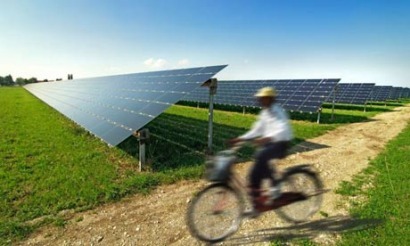
The PV Technology Incubator program has the primary goal of advancing the timeline and commercial potential of new manufacturing processes and products with the potential for dramatic price improvements.
“The start-up companies awarded under the Incubator program will truly benefit the manufacturing processes and products in the United States through rapid commercialisation of these innovative technologies,” NREL Incubator Manager, Martha Symko-Davies, explained.
This is the fourth instalment of the successful PV Incubator program where companies benefit from close partnership with the national laboratories. Previous awardees including Calisolar and Abound Solar successfully developed new PV technologies with DOE support and are now rapidly scaling their domestic manufacturing operations while creating jobs in their communities. Calisolar currently has about 190 employees in California and 75 MW of capacity with plans to expand to 220 MW. Abound currently has about 350 employees in Colorado and 65 MW of manufacturing capacity with plans to expand to 775 MW with a recently announced $400 million federal loan guarantee.
Californian thin-film in the spotlight
In this current round, companies were selected in one of two categories: Tier 1, representing the development of commercially viable prototypes, receiving up to $1 million over 12 months; and Tier 2, representing the development and manufacturing scale-up of pilot-scale processes receiving up to $4 million over 18 months. Funding will be issued through the DOE’s National Renewable Energy Laboratory and looks to favour the development of thin-film technologies, with two of the three companies selected for Tier 1 funding working in this area.
Solexant (San Jose, California) is developing a new thin-film material comprised entirely of materials that are non-toxic and abundant on the Earth, including copper, zinc, tin, selenide, and/or sulfer (CZTS). These devices will be constructed with a non-particle ink that can be printed and will result in commercially viable efficiencies using scalable, low-cost processes. Stion (San Jose, California) is working to develop a thin-film technology that will allow two high-efficiency thin-film solar devices to be stacked, allowing for much better absorption of light and creation of power. The devices are constructed in a way that significantly reduces cost, simplifies manufacturing and reduces material utilization over traditional designs.
A third company, Caelux (Pasadena, California), has also been selected for Tier 1 funding to develop a novel flexible solar cell manufacturing process and design, which will dramatically reduce production costs by minimizing the amount of semiconductor material used while also having vast potential to surpass standard device efficiency.
California-based company certainly seem to have done well out of this current round of the PV Technology Incubator program. The fourth company named for Tier 2 funding, subject to negotiation, is Crystal Solar, which just like the previous three companies is based in the US’s Golden State. This start-up is working on a new technology for the fabrication, handling, processing and packaging of very thin single-crystal silicon wafers (four times thinner than standard cells). This solution uses much less silicon, eliminating many of the wasteful and expensive wafer-processing steps and addressing the problem of handling very thin wafers.
The recently announced funding is part of the DOE’s SunShot Initiative, which aims to cut the cost of solar photovoltaic power by 75 percent by the end of the decade, or to about $1 per watt.
NREL is the Department of Energy’s primary national laboratory for renewable energy and energy efficiency research and development. NREL is operated for DOE by The Alliance for Sustainable Energy, LLC.
For additional information:

